Event Aggregator imports events from other calendar sources, including Google Calendar, iCalendar, Meetup, Eventbrite, and ICS and CSV files. This article covers the step-by-step process of importing from another site using a feed or URL. Separate tutorials explain the process for importing from a CSV file or ICS file.
Before you can import from one of these sources, you’ll first need to have a valid license for Event Aggregator, which you can check in The Events Calendar settings in WordPress under Events → Settings → Licenses. If you have a valid license, you can head to the Events → Import screen and see additional calendar sources available in the Import Origin options.
Select the import source
Click the Import Origin field and select the Meetup source from the dropdown menu.
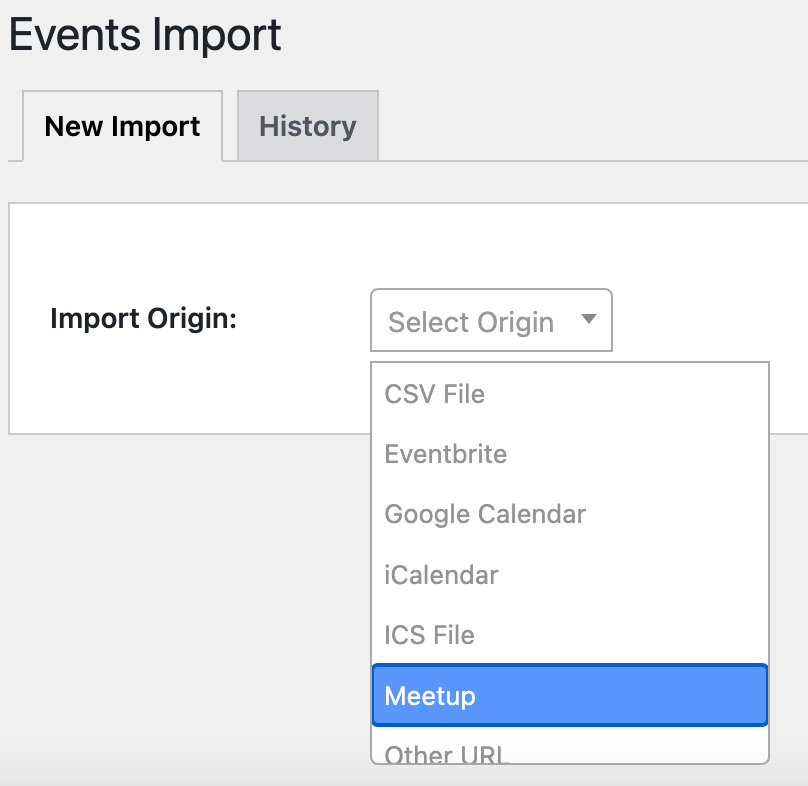
Connecting to Meetup
The first time you import from Meetup, you’ll be prompted to enter information that allows Event Aggregator to “talk” to Meetup and accurately gather event data. For this option to work, you will need to connect Event Aggregator to Meetup by going to Events → Settings → Integrations.
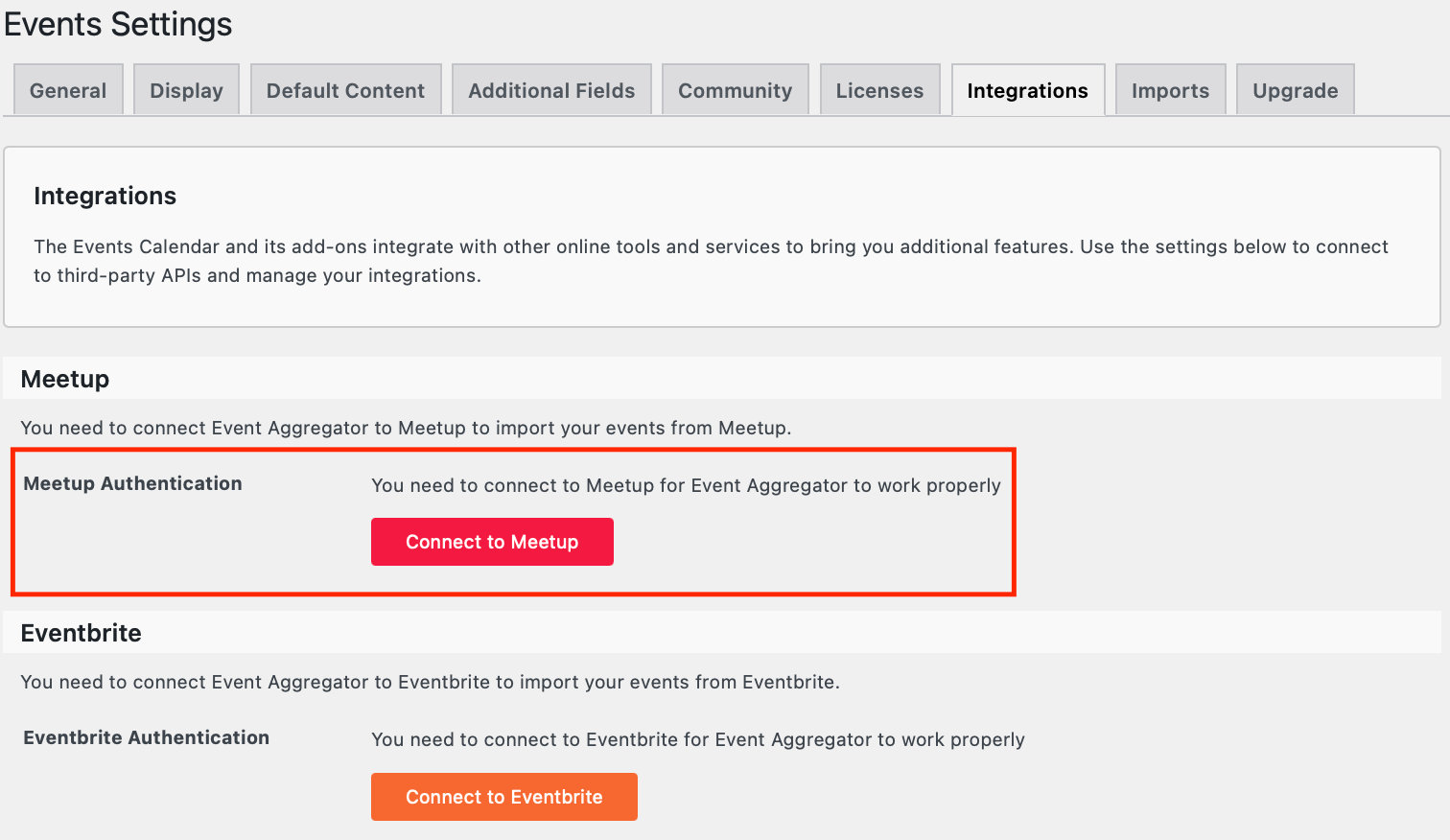
Select the import type
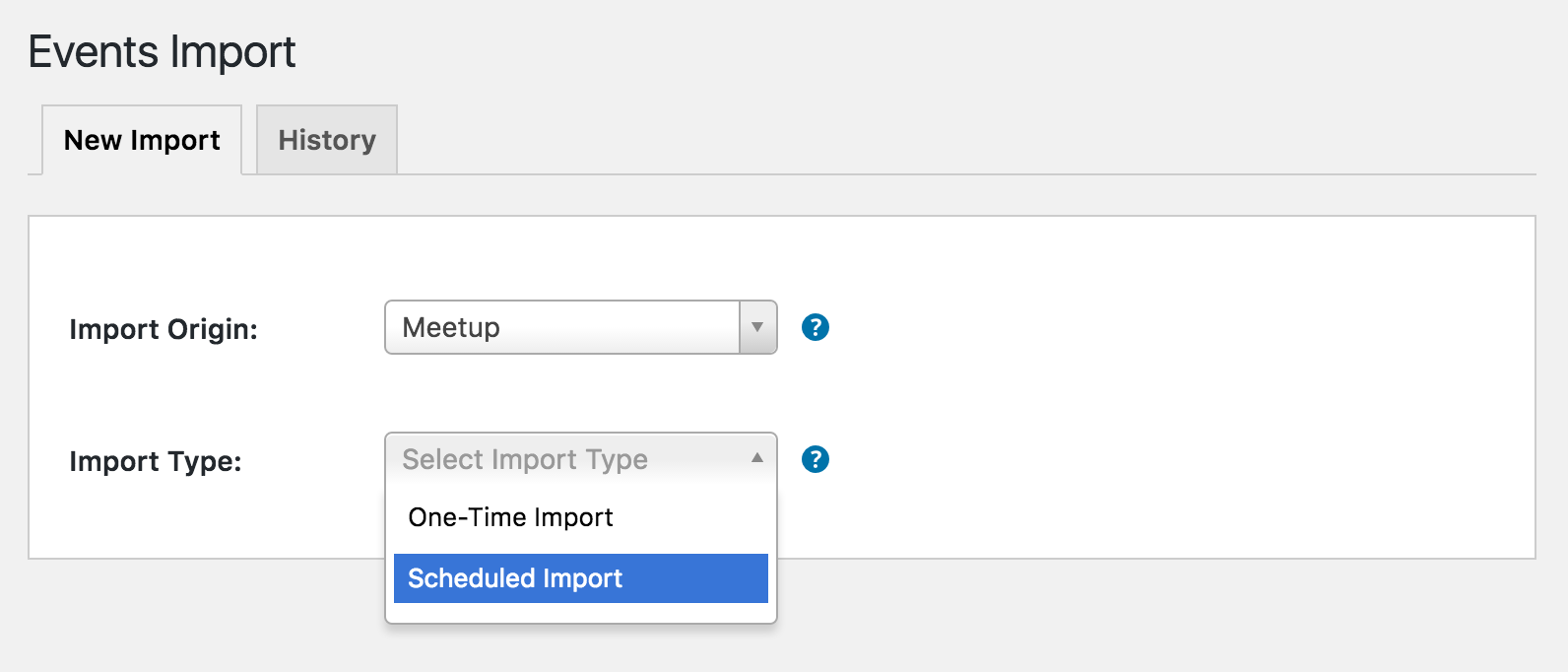
Will this be a one-time, manual import of events or a repeating import that runs on a schedule? This step allows you to choose the type of import you need.
If you select Scheduled Import, you will need to specify how frequently (daily, hourly, etc.) Event Aggregator looks for new or updated events and runs an automatic import. The first import will run immediately and then on its set schedule.
Provide the import URL
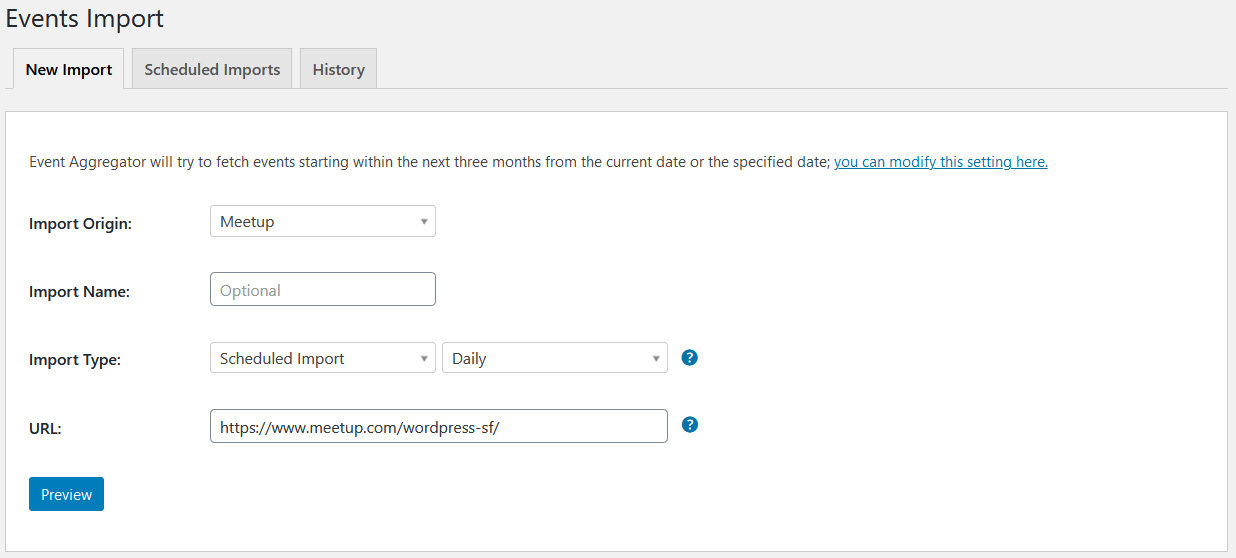
Name your import (optional): You can give your import a custom name. If you don’t, the name will default to the feed’s name.
Provide the URL of the source that your events are being imported from. For example, if you have selected Meetup as the import source, then you will provide the URL of the Meetup group where the events being imported are located or the URL of a specific event. If you are not sure what URL to use, click the icon to read detailed instructions for the source you’re using.
Preview the import
Click the “Preview” button, and Event Aggregator will produce a list of events available to import from the source you provided.
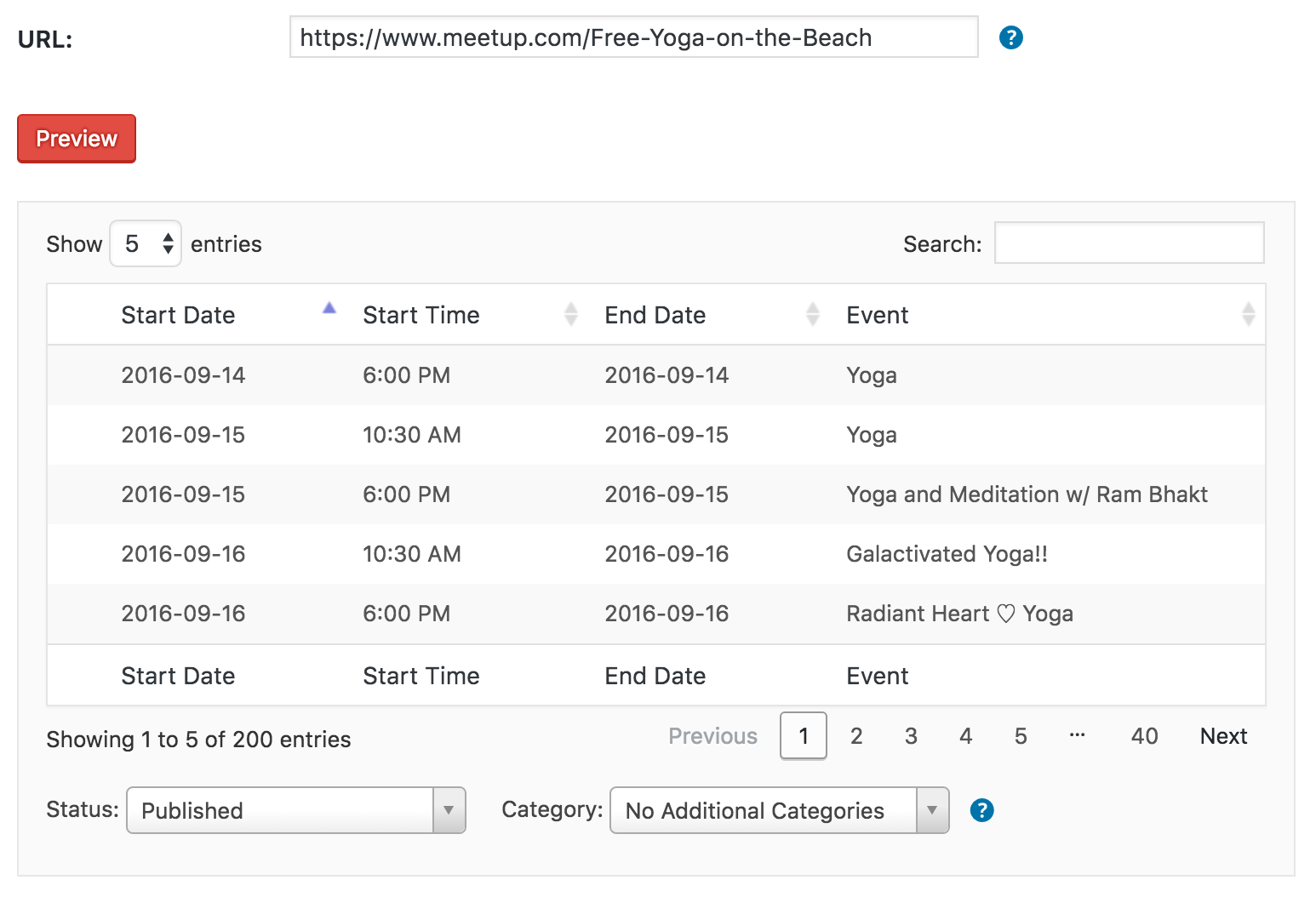
This preview shows you all the events available to you in the feed. It allows you to search for specific events, select only the events you want to import, or simply check the content before everything is imported.
During this step, you can also set the WordPress status of the events when they are imported:
- Published: The content will be published to your site right away.
- Draft: The content will not be published but will be available for editing after the import.
- Pending Review: The content will not be published or a draft but labeled as being ready for a WordPress editor or administrator to review before it is published.
- Private: The content is published to your site right away but only accessible to those logged into the site and with permissions to view the content.
The status you choose will apply to the event and any new organizer or venue created by the import.
You can also assign an Event Category for the imported events. This category will be added in addition to any categories defined by the feed itself.
Run the import

Once you’ve had a chance to preview your content and select what you would like to import, go ahead and click the Import All/Save Scheduled Import button below the preview panel (the text of the button is different for one-time imports and scheduled import). Click the button to start your import, and then sit back and watch Event Aggregator do the work!
Learn more about Event Aggregator’s import settings here.